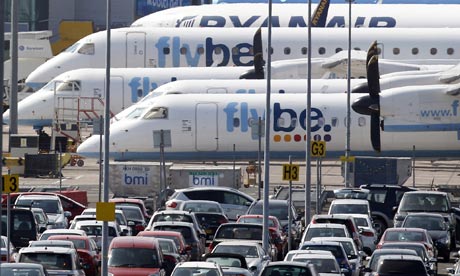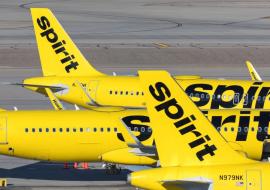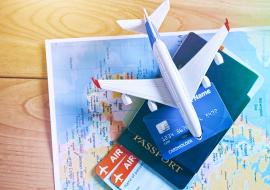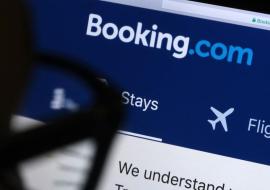Report Warns Air Passenger Duty Harmful for UK Economy

Report Warns Air Passenger Duty Harmful for UK Economy
(The Antigua Observer)
A report recently done for the British Chambers of Commerce (BCC) has concluded that the UK’s Air Passenger Duty or APD, which Antigua & Barbuda’s government sternly opposes, is bad for the UK economy.
The report is entitled “Flying in the Face of Jobs and Growth: How Aviation Needs to Change to Support UK Business”, and predicts the APD could lead the British economy to lose nearly US $17 billion.
It points out that businesses are contemplating either giving up strategic positions around UK airports or not investing in Britain at all because of the increased costs associated with the aviation tax.
There has been no official reaction from the government here as yet but it is likely to be encouraged by the news, as the government has been strongly critical of the APD.
The aviation tax is said to be severely harming the economy here because it not only increases the price of airfare for the traveler but it is also discriminatory against the Caribbean in that a higher level of taxation applies to the Caribbean than is applied to further destinations including the entire US.
Minister of Tourism John Maginley has used his position as Caribbean Tourism Organization (CTO) chairman to spearhead a campaign to get the UK to reverse the damage caused by the Air Passenger Duty (APD) to Caribbean tourism revenues.
When a freeze was announced in the APD in March this year Maginley was quick to say the lobby must continue.
“I don’t think the fact that they are not raising the APD negates the fact that the lobbies are still necessary and all of us will continue to lobby to have this reduced or redesigned,” Maginley had said.
Now the Caribbean has received its strongest support yet in lobbying against the tax. In the UK John Longworth, director general of the BCC, argued the tax was harming the British economy.
“The onus is on creating a strong, rebalanced economy, powered by exports of goods and services. All modes of transport serve business, but it is air transport that businesses rely on to get their employees and goods quickly to distant markets,” Longworth said.
“Identifying the link between air travel and economic performance is easy. What’s harder is to convince the government of the need for a clear plan to ensure aviation can play its full part in ensuring economic recovery,” Longworth added.
Backing the BCC’s aviation report was also industry expert and chief executive, Mike Carrivick from the Board of Airlines Representatives in the UK (BAR UK).
He called on the Secretary of State for Transport, Justine Greening, to act on the findings, and agreed the lack of UK connectivity should be addressed sooner rather than later for sustainable aviation and growth.
“The BCC report illustrates just how vital air transport is for the economic recovery of the UK. The business world is being held back by the lack of capacity to serve new and existing destinations by air, and is justifiably concerned that new and emerging markets will be lost to competing economies,” Carrivick said.
Scrapping higher passenger taxes were labeled a priority as many European countries including Belgium, Holland, and Denmark have already abandoned the aviation levy.
Analysis showed a 5 per cent year-on-year rise in APD could cost the economy at least £70M by 2015, £190M by 2020 and £660M by 2030; and reduce the number of jobs by 25,000 in 2015; 71,000 in 2020 and 250,000 in 2030.
The report pointed out with EU’s carbon Emissions Trading Scheme (ETS) to start from 2012, Britain’s aviation industry would be hit with a double taxation.
“The government now has a simple choice. It must set a bold, long-term aviation policy that serves our businesses and boosts economic recovery,” Longworth said.
Maginley and his fellow tourism ministers across the Caribbean are likely to be encouraged by the new report of the British Chambers of Commerce BCC supported by the independent consultancy, Oxera.
The Oxera analysis considered three scenarios: first, an annual real increase of 5 per cent in APD; second, UK government regulation of aviation emissions; and finally, UK government incentivizing development of green aviation fuel.
Both the BCC and Oxera said the worst option is the APD continuing on its current trend; it would cost the UK economy US $17.6 billion and quarter of a million jobs by 2030.














